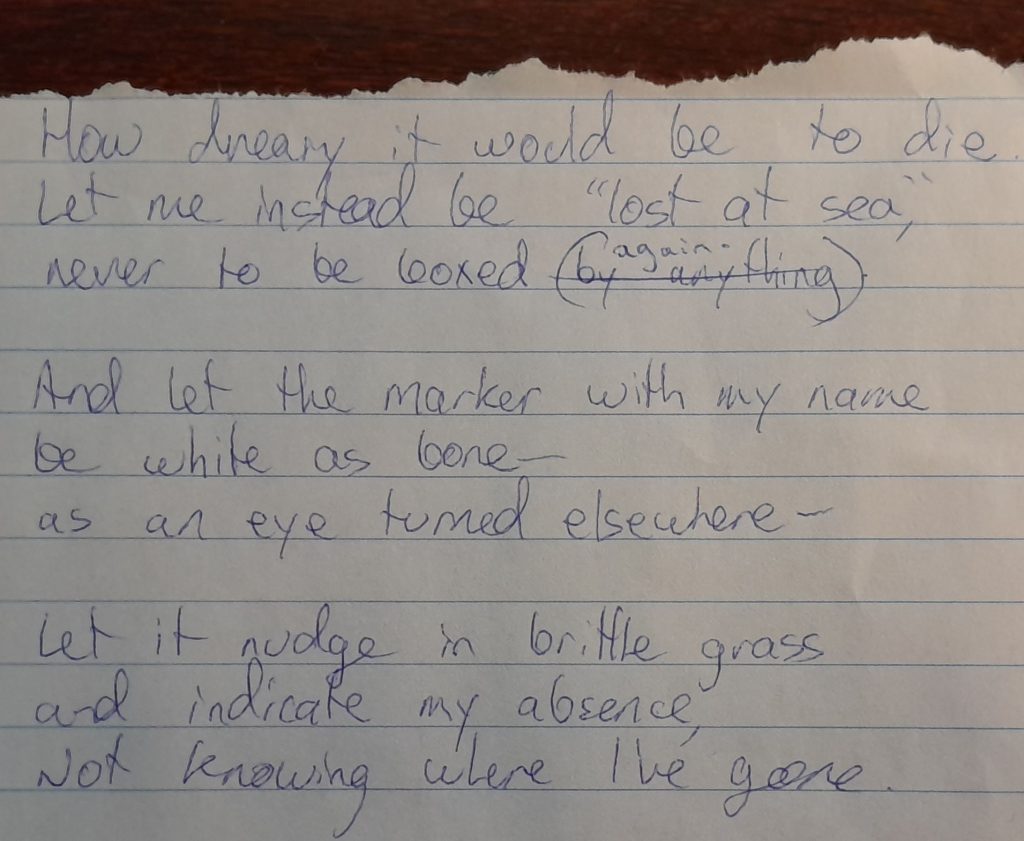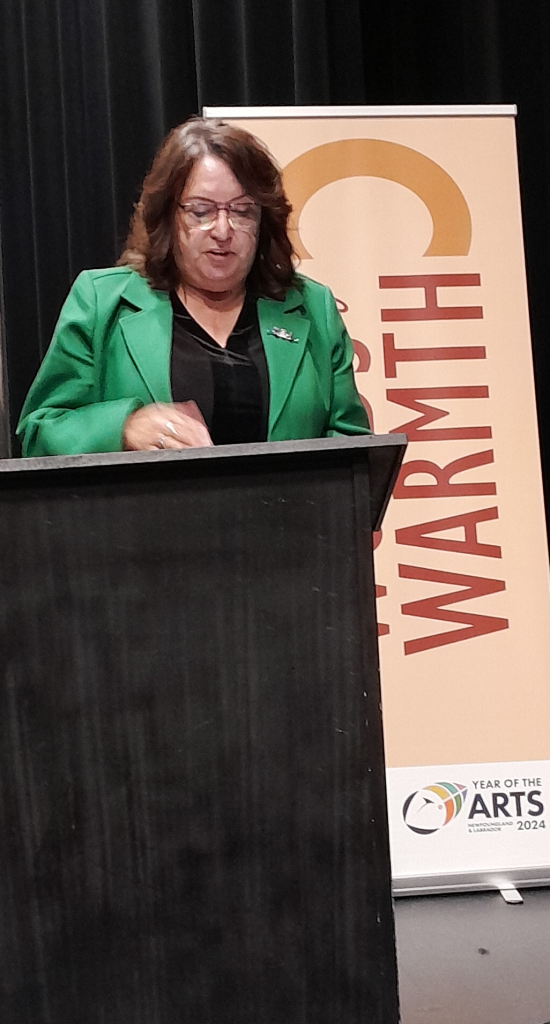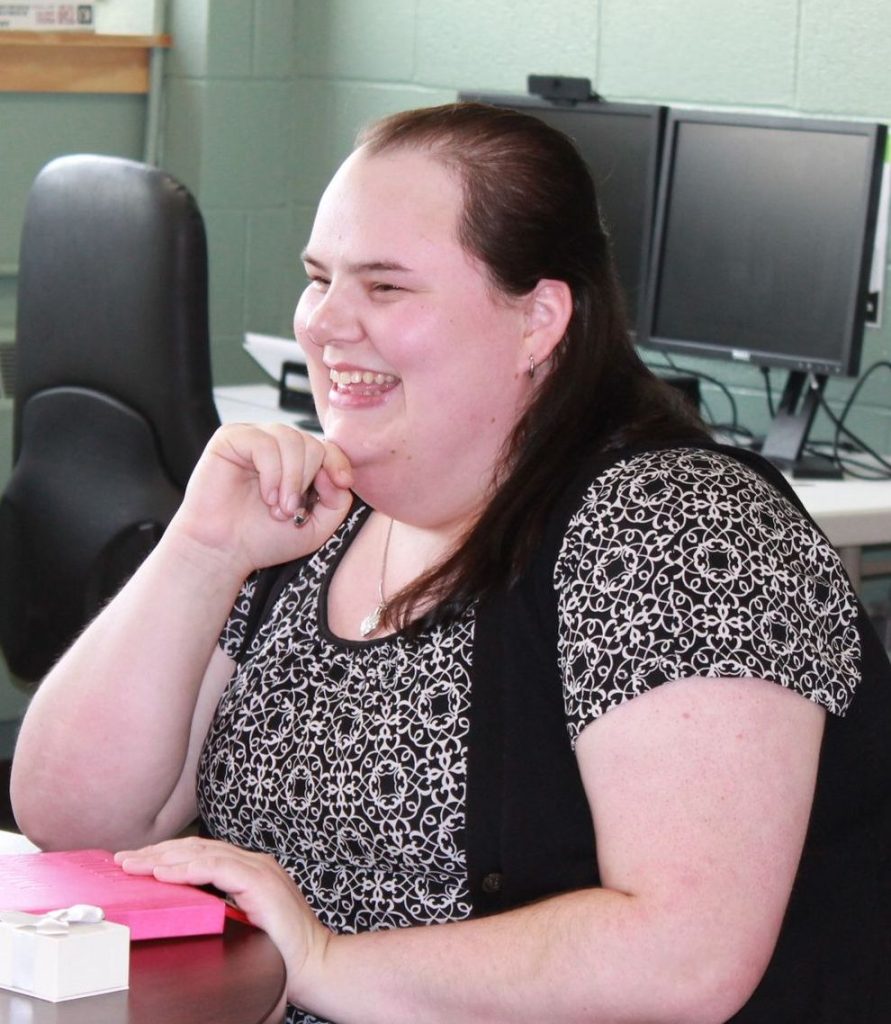We’ve had three more workshops in the past 24 hours!
Today, Anne Budgell talked about different aspects of researching and organizing materials for historical non-fiction, in the vein of her biographical book, Dear Everybody (which Robin McGrath reviewed in Labrador, a Reader’s Guide) and her history of the 1918-19 influenza epidemic in Northern Labrador, We All Expected to Die, published by Memorial University Press. The group crowded around Anne’s laptop in awe as she scrolled through hundreds of pages of the historical timeline she’d constructed, getting a valuable glimpse into the rigour and diligence of her approach.
In the afternoon, Sara Tilley gave a fantastic, participatory workshop about an important but often-overlooked component of a writing career: reading one’s work in public. Sara is such a fun, energetic, and energizing person. If you ever get a chance to attend a workshop with her or to see her perform, do so! Today she read briefly from her second novel, Duke, which won the prestigious Winterset Award in 2015. Then after teaching us all how to warm up, ground ourselves, and prepare our breath, she invited the participants to read from their own work. It was a pleasure to hear so many different voices: everything from novel excerpts to poems to a children’s story to a blog post, and every one of them delivered with flair. For my part, I read a silly poem that I wrote for the upcoming Pride Coffee House. I won’t spoil it here, except to say mysteriously that it contains the words “carapace,” “filigree,” “chitin,” “cuticle,” and “exuvia.”
Before all of this, we had Nancy Gear’s workshop last night, about her approach to poetry. She read to us as well (including a piece I remember from last year’s Pride Coffee House, as it happens!), and after some inspirational words rooted in naturalness, mindfulness, and humility, she set us to an exercise of composition. A small, white gift box was passed around the group to serve as a focal point for our brainstorming and as a beginning for our poems-to-be. Each participant completed an original poem and read it aloud, which is truly a remarkable thing.
Having insufficient time, I forsook my love of rhyme. I did, however, finish a quick poem. The photo here is of my third or fourth rewriting on ruled looseleaf. We had about 15 minutes or so to write and revise, I think. I was pleased with the outcome of my own efforts. If I did not adhere closely to the assignment, I did at least retain the elements of a box and whiteness! Overall it was an excellent and eye-opening exercise, and one which, were I as well disciplined as I’d like, I would aspire to repeat as often as possible.
[Untitled]
How dreary it would be to die.
Let me instead be lost at sea,
never to be boxed again.
And let the marker with my name
be white as bone,
as an eye turned elsewhere.
Let it nudge in brittle grass
and indicate my absence,
not knowing where I’ve gone.


Nina Pye reading from her novel at Sara Tilley’s workshop.

Poet Nancy Gear, delivering her workshop at the festival.
![M [about]](https://morgenmills.com/wp-content/uploads/2024/06/m.png)